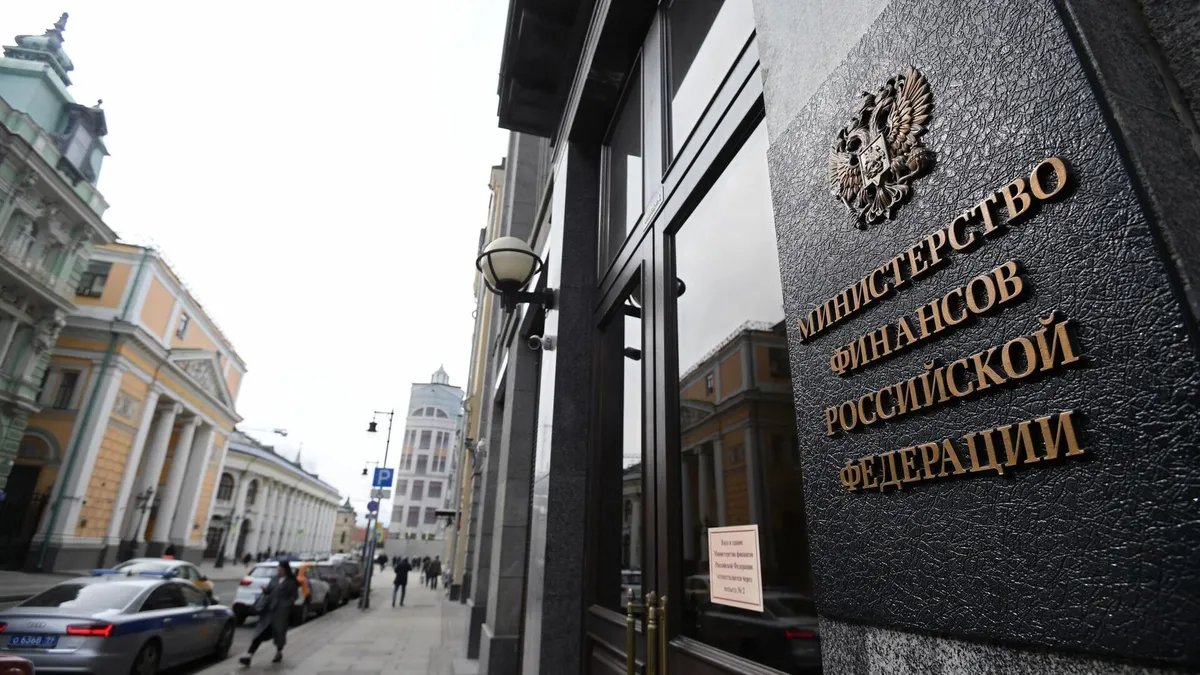
Russia’s Finance Ministry in Moscow. Photo: Kirill Kalinikov
Russia’s federal budget once again ran a deficit in October, with expenditure exceeding revenue by some 400 billion rubles (€4.2 billion) and bringing this year’s current shortfall to 4.2 trillion rubles (€44.6 billion), or 1.9% of GDP, business daily Kommersant reported on Wednesday, citing the Finance Ministry.
In the first 10 months of the year, federal tax revenue earned from the country’s oil and gas industries decreased by 21.4%, to 7.5 trillion rubles (€79.6 billion), compared to the same period in 2024. Kommersant blamed the falling price for Urals crude oil and a stronger ruble. Only March, August and September witnessed a budget surplus so far this year.
Russian oil prices have sunk to their lowest level since the beginning of the year, according to Kommersant, with oil at ports in the Baltic and Black Sea selling for almost $20 per barrel lower than the price of Brent crude oil since the US imposed sanctions on Russia’s two largest oil companies Lukoil and Rosneft at the end of October.
A statement on the US Treasury Department website said that its imposition of sanctions came “as a result of Russia’s lack of serious commitment to a peace process to end the war in Ukraine” and aimed to “degrade the Kremlin’s ability to raise revenue for its war machine and support its weakened economy”.
The price for Urals crude oil was $19.4 cheaper per barrel than benchmark Brent crude on 10 November, Kommersant continued, while in early November, the discount was equivalent to $13–14 per barrel, and just $11–12 prior to October’s sanctions. However, according to experts who spoke to Kommersant, Russian oil prices are likely to return to levels seen in early autumn once the market has stabilised.
In further signs of a slowdown in the Russian economy, the Institute for the Study of War (ISW) reported on Monday that German Gref, the head of Russia’s Sberbank, had told Vladimir Putin that the bank was experiencing only “very modest” growth due to “challenging macroeconomic conditions”, with growth this year being worse than expected. The ISW said Gref’s statements were notable as the Kremlin had been keen “to portray the Russian economy as stable and strong”.
